
Ian Broudie: “I feel vindicated when Pure is on the radio 30 years later and it sounds really good.”
Ahead of his summer performances, the creative power behind The Lightning Seeds chats to us about his career in music
Ian Broudie’s life in music started as a member of the short-lived Liverpool group Big In Japan, alongside other future greats such as Bill Drummond and Holly Johnson. He has also worked as a producer for the likes of Echo & The Bunnymen, The Fall, The Coral and many more. However, it’s as the creative force behind The Lightning Seeds that he has left his most significant contribution, including the much-loved albums Jollification and Dizzy Heights.
Though the music of The Lightning Seeds was often packaged up as a part of the Britpop scene of the mid-90s, Broudie’s psychedelic pop stylings always had a timeless feel to them which floated high above Cool Britannia. It’s the reason why songs such as Pure, Lucky You and The Life Of Riley still sound fresh today, at odds with the now dated offerings of so many of his peers from that decade.
With the festival season giving fans the opportunity to once again listen to The Lightning Seeds in a live setting, we caught up with Mr Broudie…
You’ve been back playing again for a while now, how has it been going so far?
“I mean the band is me really, isn’t it? Obviously it started off as a studio kind of thing with me playing all the stuff but record companies at that time were very much only signing bands. I didn’t have a band but I had the songs. I ended up recording them at home and they came out and then I didn’t really play live until the third album. Then I got musicians who were friends to help me play live and that has kind of continued.
“I’ve always tried to just find people I know because I’m not a big fan of session musicians – this way it feels more of a band. That started off really well, but then I had a few bands that were rubbish and I think I went into a bit of a dip and I lost interest. I feel like the last Lightning Seeds album I really did in earnest was Tilt. Then I did a solo album which was lovely but it was very much a document of just trying to write the songs in the studio for two weeks and recording them very simply. I had some more songs that I thought didn’t sound like The Lightning Seeds but unfortunately they did come out under the name. I don’t consider that an album of ours just because they never felt like Lightning Seeds songs to me. Obviously I’d written it, but it just didn’t have the same feeling and I kind of stopped as it just didn’t feel like I was writing in the same way.”
Has that changed now?
“Recently it’s been really great because I’ve started playing again and the band’s really good. It’s made up of lovely people and it’s really fun to do and it’s actually the most enjoyable it’s ever been. A lot of people keep saying we’ve never sounded this good live, which has been a bit inspiring. I’ve now started writing some tunes and I’m halfway through making a record. I consider it the first one for a long time that I’ve really taken seriously. We’re playing a fair amount this summer and hopefully when there’s an album I’ll do a tour.”
Is there anyone in the band we’d know?
“They’re just all people who are friends and I know. My son Riley is actually playing guitar with me and his mate Jim [Sharrock] is drumming with me – I’ve known him since he was a kid. There’s also my friend Abi [Harding] who played in The Zutons, a band who I produced and worked with. Martyn [Campbell], who has played in every incarnation of The Lightning Seeds, is on the bass. We all know each other very well and it’s a really nice vibe and a great band. I think we all have an affection for the songs.”
It’s now been more than 20 years since Jollification was released. What does it mean to you as a performer and a songwriter that there’s still an audience for those songs?
“I love the fact that I still hear them on the radio in lots of different countries, and obviously here. And I hear them not just as ‘remember this old one?’, they seem to be continuously on. I had a real idea of how I wanted them to sound in my head and I think at the time people weren’t sure about the idea and I’d get people saying, ‘This guy has produced all these bands and this doesn’t sound like that. Why doesn’t it sound like that? That was better,’ and it used to really annoy me because it obviously wasn’t by accident that they didn’t sound like that. I feel vindicated when Pure is on the radio 30 years later and it sounds really good.”

Ian: “I don’t like the ideas of producers, I never did and I never wanted to be one”
Why do you think those songs have lasted?
“I’m just really glad that they have! Those songs just seem to have a life of their own. We’re playing a lot of them and they sound different when you play them live and you change the arrangements. It doesn’t feel like we’re playing old songs; they feel like they still have an energy in them that is ‘now’. Maybe that’s because they weren’t created by a group in a room at the time. Sometimes things can capture a moment and that’s a beautiful thing, but it also probably dates it to that moment. I think these records weren’t like that and I think the recordings and the songs are a slightly separate thing, as there was no band ever to play them. It doesn’t feel like we’re playing old tunes, even though we are.”
Whereas some of the bands you produced during that era, like Sleeper and Dodgy, are perhaps rooted in that time?
“Yeah, I agree with that. We were never really part of that scene. I remember when Pure came out and they’d have The Chart Show on a Saturday. It was No 1 in the indie charts and the next week it would be The Stone Roses’ She Bangs The Drums at No 1 and the week after it would be us again. All the other things in that chart were groups, and then later during the Jollification and Dizzy Heights time, it was the height of Britpop and it was still all about groups like Supergrass or Blur or Oasis and I was just always a bit outside of everything.
“Originally that’s why I ended up recording the album at home, because I didn’t have a record contract. We pressed up 500 copies and asked someone if they’d take it to the radio, and that was Pure, and it gradually grew from there. We were always very much of the same time but not a part of any of that. I think that had its disadvantages and its advantages. There was maybe a little suspicion in the press: ‘What’s going on? It’s just this bloke who has produced these bands.’ That’s absolutely the norm now. Whether it’s Kanye West or whoever, just to be a producer and a songwriter, it’s the norm. Maybe it was just slightly ahead, not in a creative way, but maybe it suffered a little from that as well.”
You were slightly on the periphery of Britpop…
“We managed to co-exist around those Britpop things and around indie things before that, but it never sounded anything like them. If you put any of the records on, it doesn’t sound anything like them. Jollification is all loops. I remember being at The Haçienda and they’d be playing A Guy Called Gerald and all this stuff and then Pure would come on in the middle of it and everyone would love it. I used to think it doesn’t fit in anywhere, but it fits in everywhere!”
How much did your work as a producer and being in Big In Japan inform that Lightning Seeds sound?
“I don’t think Big In Japan did. Even though that band has lived on, we only did about 10 gigs, I think – a very short period of time. I was someone who was obsessed with music and when I was 15/16 I went into Liverpool city centre and encountered all these people from Pete Burns to Bill Drummond. I was very into The Velvet Underground, Bowie and Iggy Pop. Punk had just happened and the Ramones and stuff and I was obsessed with the music. With Big In Japan it was people who went to art school or theatre school and it was about ideas and that’s the way that influenced me.
“From that point on I felt like if you’ve got an idea and you think it’s good, even if you’re not very good at doing it, it’s always going to be a good idea. Whereas the reverse of that, if you haven’t got a good idea, however good you get at playing or singing, it’s still never going to be a good idea. So it just made me think more laterally. Although I wasn’t a singer or a frontman, I felt like if it’s a good idea then something good will come of it.”
Music is full of frontmen who can’t really sing…
“I think I can sing now, which is weird, but at the time I certainly thought I couldn’t. It was about a melody and a sound and my voice and where it fitted in the arrangement. It was all very much part of the idea, which was the way The Lightning Seeds started – with an idea. So I suppose it was a little bit less physical and instant than a group playing in a room with power; it was always apart from that.”
When you were producing bands like The Fall or Echo & The Bunnymen, were ideas also firing for your own songwriting?
“I was always a bit of a reluctant producer. I don’t like the ideas of producers, I never did and I never wanted to be one. Bill Drummond somehow cajoled me into producing The Bunnymen, who were my friends. Then I was sort of a producer, but I always had this in/out relationship with it, where I was a producer one week but really I was a songwriter. That’s what I wanted to do. Apart from notable exceptions like George Martin or Dr Dre who turn the job of producer into something great, 99% of producing is being a technician and it’s horrible, it’s like they’re just filling their calendar. I never liked that whole thing of basically working for a record company. Originally producers were the A&R person and they had a vision for the group and were involved in every aspect of the career and that’s great, but people just going in on a Wednesday setting up some mics with no real context and sticking down a song, getting paid and moving on to the next one, which is what producers are, that never appealed to me.”
What was different about your approach?
“Most of the time I would collaborate with bands on a track or two and if we got on well and it felt like a good collaboration we’d have a relationship and work together more and so that’s how I feel about The Coral and that’s how I feel about The Bunnymen. I would say that I tried to learn as much from them as they would from me and most of the people who that sparked I think they’ve been friends throughout my life. I’m still very close to the Bunnymen, even though we don’t speak that often these days. I’m very close to a lot of the guys out of The Coral, and The Zutons, Nigel [Clark] from Dodgy… I think they were formed out of collaborations, or a collaboration and a relationship, which hopefully wasn’t as confined and defined as the role of producer. Now it’s about songwriters, people writing with people and then the shackles are off and they end up producing it as well. The roles are less defined and it’s a much healthier way of working than maybe it was in the 80s and 90s.”
So many of the songs that are massive at the moment have a number of different writers…
“It’s quite an interesting phenomenon because songwriting now has become a career and it’s a very lucrative one. It’s generally people who weren’t able to write a hit for themselves and failed as artists for whatever reason that might be – whatever magic it lacked – and then they end up working with other people and becoming very successful songwriters. It’s almost like a factory of failed artists who have become songwriters and do fantastically well and come up with some great songs.”
Is that something that has ever interested you?
“I would like to do that but it’s never been the right moment. Though in a lot of ways it doesn’t really appeal to me, there are ways I would like to do that. I love writing with people, in an era when no one really did co-write: a lot of The Lightning Seeds songs were co-writes with friends, from Terry Hall to Alison Moyet. I wrote with loads of people, which was kind of a rarity in those days. As a producer I remember thinking, ‘Well, this guy’s great in this group and this guy’s great in that group, I’d like to write one of my tunes with them because that would be a good blend…’
“I think now I would love to do a bit of songwriting but I’d like to work with artists where I had some context. I think the way it’s done now a lot is that people get together and the song has to be finished that day, because they’re writing with someone else the next day, and then they get a load of songs and choose the 10 percent that were any good. I hate that way of working. It must be effective but it’s probably just a different mindset. I don’t criticise it, it’s just not what I do.”
Let’s bring it back to the upcoming live shows to end with. What can people expect to see from you?
“It’ll be pretty much a set of hits, songs that people will really know and I think it will be really good.”
Interview: Duncan Haskell
The Lightning Seeds will be performing at Let’s Rock Bristol on Sunday 4 June – details can be found at letsrockbristol.com



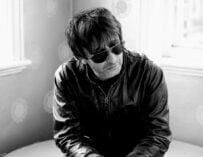
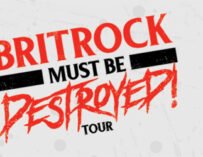
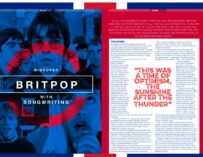
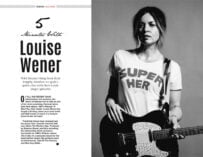
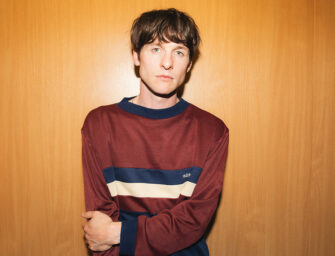
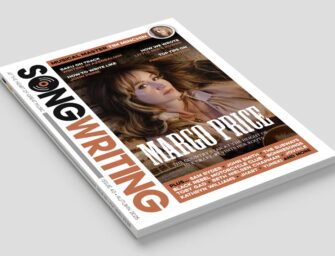
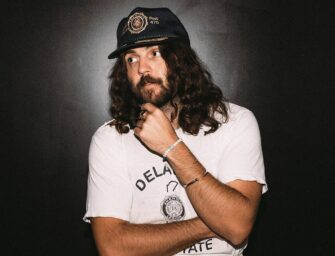
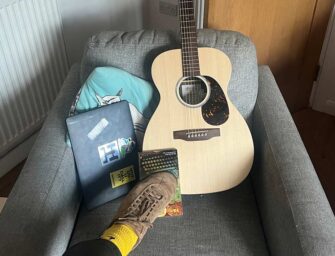
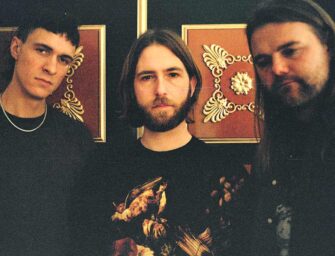






















Related Articles